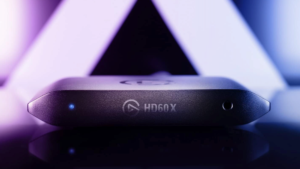Price cuts couldn’t rescue Xbox One’s sales figures – Xbox revenue down for 2019

System Requirements
Optimum 1080p PC Build
Low vs Ultra Screenshots
GPU Performance Chart
CPU List That Meet System Requirements
GPU List That Meet System Requirements
Comments
Red Dead Redemption 2
PC Demand
#100+
Rate this game
User Rating
8.4 user review score. Average score out of 10, based on 1890 review scores” style=”background: #4db53c”>
8.4
Ok
Not Ok
Optimisation
4.5 optimisation score. Average rating, based on 1713 user ratings” style=”background: #e08833″>
4.5
Now that 2019 is over, all the financial year information is coming out for the big game companies: and Microsoft hasn’t had a good year for gaming. According to its financial review, Microsoft’s video game business has dropped 21% year over year, which the company blames on a tougher than usual comparison to the same time a year prior when an “unnamed third-party title” set the bar high.
Microsoft’s game revenue decreased by $905 million for the quarter ending December 31st 2019, while revenue from the Xbox sales alone fell by 43% compared to the previous year. Microsoft is blaming this on fewer console sales and a decreased price tag on the Xbox systems themselves. The worry here is that lowered prices should contribute to a greater volume of sales but this hasn’t necessarily happened.
In addition, Xbox content and services declined by $295 million (11%) in the same time. Microsoft does claim the decline was offset by the growth in its subscription gaming services (Notably Xbox Live Gold and Xbox Game Pass for both Console and PC).
The unnamed third-party title was most likely Red Dead Redemption 2, which sold more copies than Call of Duty: Black Ops 4 during Q4 2018. Considering the end of 2019 didn’t have a similarly big-hitting release for Xbox, it’s no wonder Microsoft’s data shows revenue has declined.
Even though sales in the gaming department have decreased, Microsoft has seen an increase in its “More Personal Computing” category – which includes the gaming business department – with $13.2 billion in revenue, a slight jump from $13 billion the year before.
What does this mean for Microsoft gaming? It’s hard to say right now, but Microsoft might push for more sales in the coming year, meaning more and bigger games. We might even see a significant upgrade to the Game Pass service which has been continually improving since it’s announcement.
At the moment it’s easy to see Microsoft is laying the foundations for the next generation rather than chasing blockbuster results in the here and now. The value offering found in Xbox Game Pass is undoubtedly a loss leader at this stage, yet it allows Microsoft to cultivate a fan base in preparation for the next-generation Xbox Series X.
The Xbox One was a comparative dud from E3 2013 onward, its flailing sales typified by the news the Nintendo Switch has outsold Xbox One in less than half the time on store shelves. Since prior to the Xbox One launch, Microsoft has been in fire fighting mode, improving its consumer friendliness with Game Pass, comprehensive backward compatibility, and finally allowing its games to come to PC.
Looking forward, Microsoft has been snapping up studios like they’re going out of fashion. The fruit of their labours should be ready for plucking soon, with the likes of Playground Games, Ninja Theory, Obsidian, inXile, Compulsion Games and Double Fine Productions. MS could also deliver a knockout blow to Stadia with Project xCloud (Xbox Game Streaming), a cloud gaming service which is going to bundled in with Xbox Game Pass.
Things will certainly be interesting in 2020, that’s for sure. Nintendo has brought its A-game, Sony is in default pole position, while Microsoft has an opportunity to dramatically close the gap if it plays its cards right.







